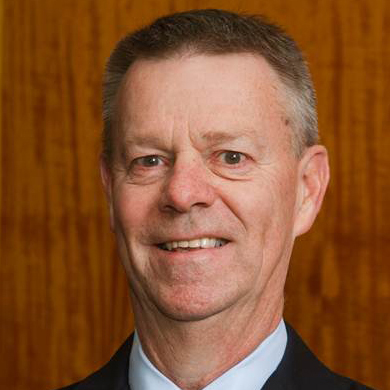Happy First-Generation Day at IUPUI! We’re celebrating first generation students and how awesome they are today and all days.
In order to celebrate that awesomeness, I went around to various first-generation students and graduates on the third floor at the Lilly Family School of Philanthropy to ask them about their first-generation experiences and what advice they have to current first-gens.
What drove you to complete your undergraduate degree, and then continue on?

Erin Polley (current executive master’s degree student): When I was growing up, both my parents worked full-time and took their careers very seriously. My mother didn’t complete college, but she ascended in her field through experience and an ongoing commitment to educate herself. After high school, I didn’t think I needed to go to college right away and that I could learn through my experiences and following my passions. I had a lot of interesting jobs and learned a lot about professions I DIDN’T want to end up in. Around age 23, I decided to pursue my education to learn more about the world around me. I had a desire to travel, to connect the dots and to really analyze history, culture and politics. I pursued Cultural Studies at Columbia College Chicago and my worldview was dramatically altered as a result of my education.
Who did you go to when you had questions about the experience? How did they help?

Coretta McAllister (philanthropic studies bachelor’s degree graduate and current master’s degree student): I went to Pamela Clark for everything! I was allowed to vent, to cry, to be confused and all over the place. However, she helped by keeping me grounded, and continues to understand me, my life and my goals. She put me first when we talked and never ceased to encourage and uplift me. Those moments with Pamela supported me to keep going.

What did it mean to you and your family to see you graduate college? (And continue on, if you’re a current master’s or Ph.D. student or have one or both of those degrees.)
Pamala Wiepking, Ph.D. (Visiting Stead Family Chair in International Philanthropy, visiting associate professor): My family was extremely proud of me for graduating from college, and then for acquiring a Ph.D. My family did think I was a bit odd as well, to study for that long, and then continue with a career in higher education. Some of them still ask if I am done with studying. But then I kindly explain that I now am in the fortunate position to help educate a new generation of students, and enable them to reach their own potential and pursue their dreams.
What did it mean to you and your family to see you graduate college?

Tim Seiler, Ph.D. (Rosso Fellow in Philanthropic Fundraising, clinical professor of philanthropic studies): The entire family was delighted when I graduated, including an uncle who had been the first in our family to enroll in college, although he withdrew and did not graduate. He was emotional at my commencement. Continuing for a master’s degree and ultimately for a Ph.D. was expected since everyone knew my goal was to become a college professor. My family, especially my parents, were overjoyed when I finished the Ph.D. They hosted a surprise party for me to celebrate, and my dad painted this on his garage: “Congratulations, Tim, B.A., M.A., Ph.D.”
Alexis Davenport (philanthropic studies bachelor’s degree graduate and current master’s degree student): My undergraduate graduation ceremony was pure bliss — I remember it like it was yesterday. I was smiling from ear-to-ear. It was the proudest moment of my entire life and I know my family felt the same. Earning my bachelor’s degree meant that I had options; it gave me hope that I wouldn’t struggle to survive and that I could create a better life for myself and my family.
What lens can first-gen students contribute to the university experience?

Alexis Davenport: The experiences of first-generation students can contribute to the university experience because our stories are about persevering and seizing the opportunities our families didn’t have. Furthermore, first-generation students navigate university without that tangible, reliable parental experience to refer to as guidance. Yet, we persevere hoping that the stories of success of college graduates can be our realities too.
Erin Polley: The value of education is not lost on me and my educational experiences have been unique truly because I was the first in my family to pursue higher education. As a mother now, I talk to my son a lot about my education and WHY I am doing it. I hope that I am setting an example for him that knowledge is ever-expanding. There is so much to learn and we can dedicate ourselves to the practice at any time in our lives.
What advice do you have for current first-gen students?

Laurie Paarlberg, Ph.D.: (Charles Stewart Mott Chair on Community Foundations, professor of philanthropic studies): It isn’t the smartest student who succeeds in academia, but the one who puts in the effort and perseveres through the ups and downs.
Tim Seiler: Study what you are interested in and what you like. Study hard and ask lots of questions, challenge the faculty “experts.” Make your own contribution to the field or discipline by searching for the “why” as well as the “what.”
Coretta McAllister: My advice would be “You are here, now kill it.” Give it your all, stay on your grind and remember that no one can take what you don’t give them.

Bill Stanczykiewicz (assistant dean for external relations): Do not let anyone stand between you and your education. This is your education. Yours! Do not let anyone be a barrier. You are in charge of your own level of persistence. Why? Because no one stands between you and your education.

Leave a Reply